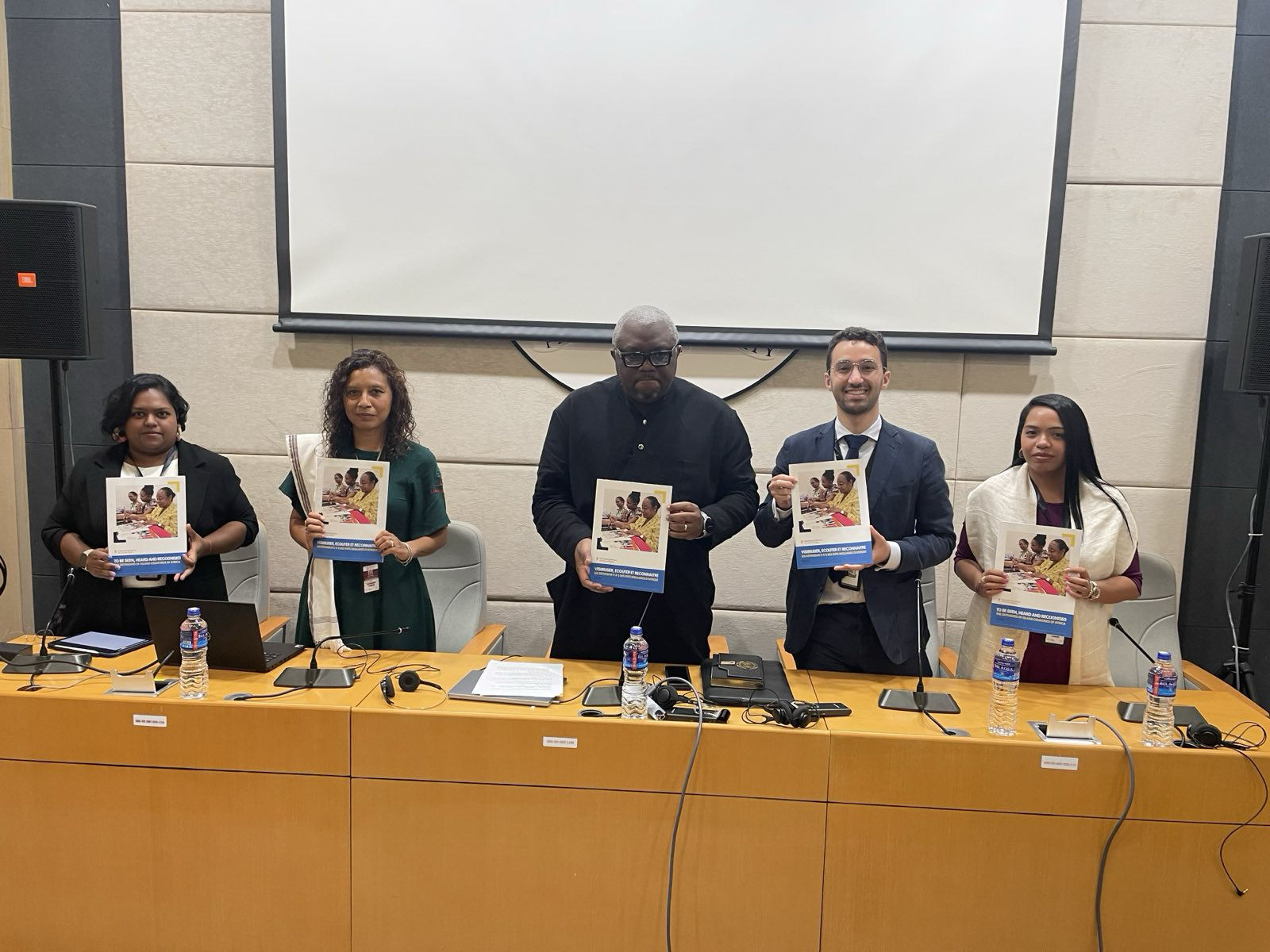
Egypt: Reform unjust vice laws, guarantee open civic space
During Egypt's UPR adoption at HRC59, Nora Noralla delivered a joint statement on behalf of ISHR, Cairo 52 and Middle East Democracy Center. Watch and read the full statement below.
© Photo: UNWebTV

During an Enhanced Interactive Dialogue with the Special Rapporteur on Afghanistan on 19 June, in which he presented his most recent report to the UN Human Rights Council, ISHR made a statement noting that the pursuit of justice for women and girls in Afghanistan demands a multifaceted approach including various accountability mechanisms.
The statement began by thanking the Special Rapporteur for his commitment to engaging with Afghan civil society. It further welcomed the report’s intersectional analysis of the establishment and enforcement of an institutionalised system of discrimination and segregation against women and girls, and the impact on men and boys in resisting this system of gender oppression.
‘This report is particularly significant in that it clearly articulates that gender apartheid most fully encapsulates the institutionalised and ideological nature of the human rights abuses against women and girls’, said ISHR’s Tess McEvoy, ‘a call that has come from Afghan women human rights defenders inside and outside the country’, she added.
Critically, the statement highlighted that the pursuit of justice demands a multifaceted approach including various accountability mechanisms, including establishing a Human Rights Council-mandated mechanism to engage deeper into investigations and evidence collection to contribute towards accountability. With strategic coordination, this can exert heightened pressure on the Taliban.
The statement also welcomed references in the report to marginalised communities including ethnic, religious and linguistic minorities and the multiple and intersecting violations they suffer, along with references to violations because of one’s sexual orientation and gender identity.
Finally, in response to the expert squarely placing into view the responsibilities of international actors, the statement echoed an ongoing call on all States to ensure that any engagement with the Taliban should not normalise the regime as it continues to violate international human rights. It highlighted that an inclusive and stable Afghanistan requires justice and accountability.
Download as PDF
During Egypt's UPR adoption at HRC59, Nora Noralla delivered a joint statement on behalf of ISHR, Cairo 52 and Middle East Democracy Center. Watch and read the full statement below.

The 59th session of the UN Human Rights Council (16 June to 9 July 2025) will consider issues including civil society space, climate change, sexual orientation and gender identity, violence and discrimination against women and girls, poverty, peaceful assembly and association, and freedom of expression, among others. It will also present an opportunity to address grave human rights situations including in Afghanistan, Belarus, China, Eritrea, Israel and oPt, Sudan, Syria and Venezuela, among many others. Here’s an overview of some of the key issues on the agenda.

On 4 May 2025, on the sidelines of the 83rd Ordinary Session of the African Commission on Human and Peoples’ Rights (ACHPR) in Banjul, ISHR officially launched its new report on the situation of human rights defenders in the African island states: Cape Verde, Comoros, Madagascar, Mauritius, São Tomé and Príncipe, and Seychelles.